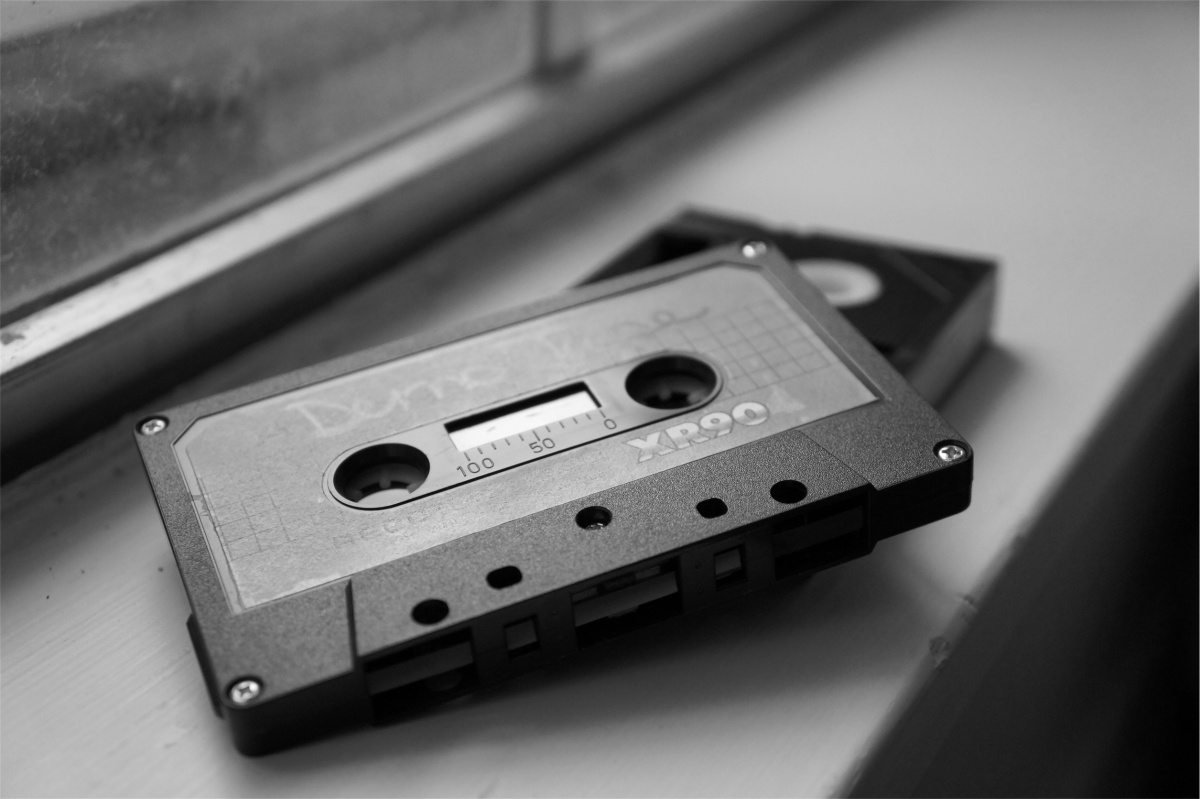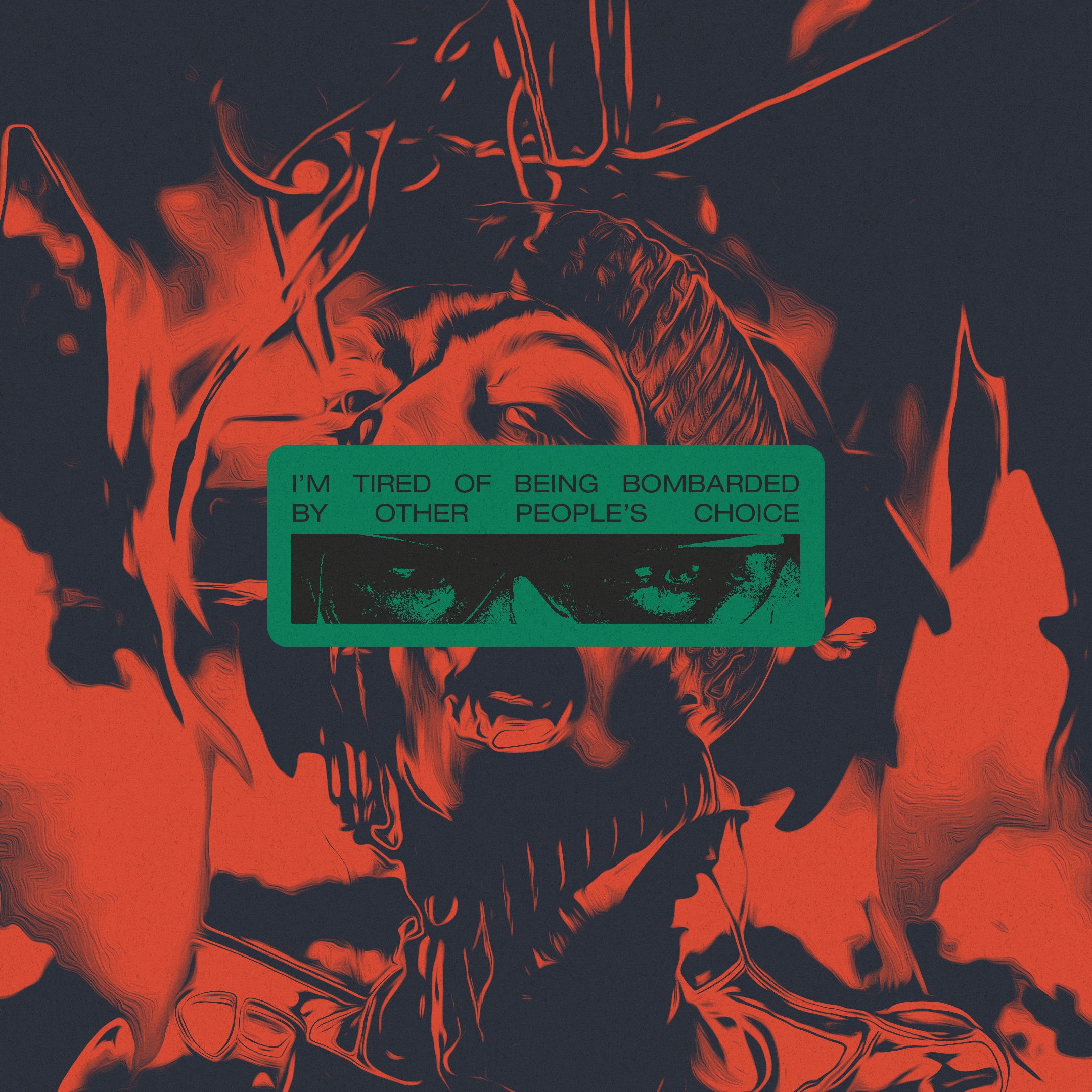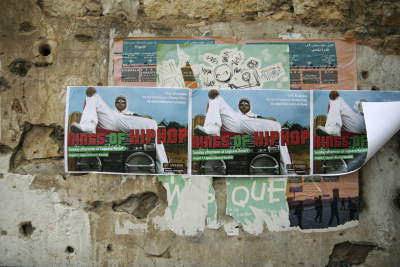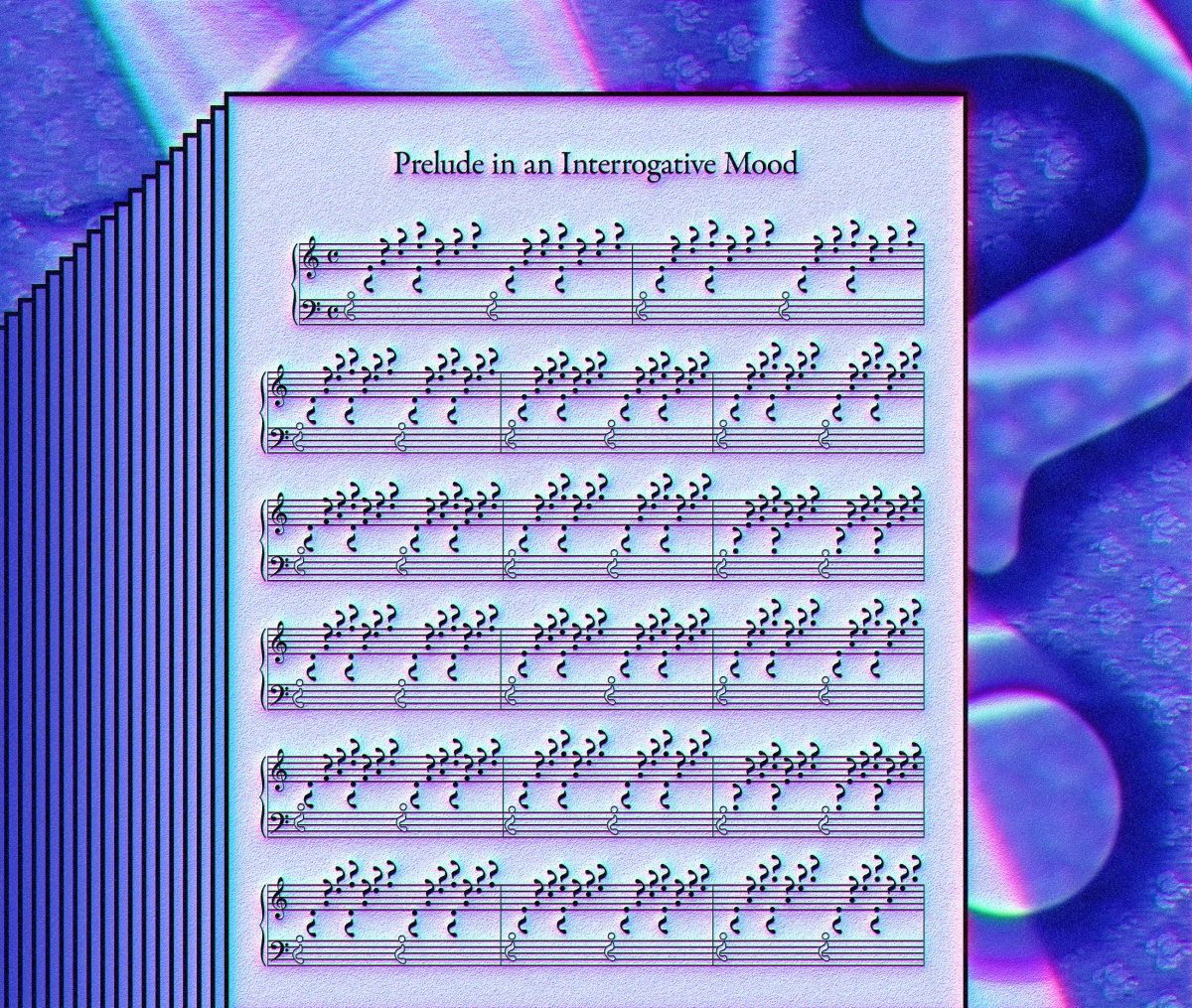What role and methods can a privileged Western person adopt when curating contemporary music from a global perspective? In his ongoing endeavor to understand the world through music and sound, Norient founder Thomas Burkhalter suggests 13 curatorial principles. 20 Years of Research Leading to 13 Curatorial Principles. Read the first six here. (Read Part 2 here)
For 20 years now, Norient and I have been trying to get closer to cultural phenomena and movements in and around music. To do this, we have adopted approaches ranging from anthropology and journalism to the performing arts, as well as co-curating a variety of events. In this personal essay, I will suggest 13 principles that seem important to me when writing about music, examining it in a documentary film, screening it at Norient Festival, or exhibiting it. These principles have been cultivated through my experiences as an anthropologist, music journalist, founder of Norient, curator of editions 1–10 of the Norient Festival and various events, audiovisual performer, and former member of various funding boards. The article is structured according to a series of anecdotes arranged into four overall chapters: research, collaboration, politics, and formats. These anecdotes communicate the experiences that helped build this methodology for researching and curating. I am not claiming that these principles are exhaustive. However, what they do advocate for are (i) in-depth, long-term, and self-aware research; (ii) fair collaboration with researchers from different disciplines and with journalists and artists from different places and of different genders and generations; (iii) endorsing artists, attacking stereotypical ideas of cultures as fixed entities, showing solidarity with people in war and crisis, and finding ways forward from the challenging demands of identity politics; (iv) searching for multimodal formats of representation that open up spaces for complexity and plurality and consequently trying to create new ways of telling stories to keep reaching new people and audiences – and not handing over the power to define things to big companies and players.
I RESEARCH
1. Go Deep
Going deep is principle 1 for conducting strong, rigorous research, good curation, and high-level journalism. How do I get closer to music, closer to musicians, and closer to phenomena and moments in and around music? That is what I keep asking myself throughout all my endeavors.
I spent two crucial years in Beirut in 2005 and 2006. This experience led to my PhD and my first monograph, Local Music Scenes and Globalization: Transnational Platforms in Beirut (Burkhalter 2013). In my attempt to understand things better I interviewed over 100 musicians and non-musicians from different backgrounds. The key musicians in my research were young rappers, free improvisers, death metal guitarists, and jazz musicians. All of them were trying to create new platforms in a city that seemed to be slowly recovering from 15 years of civil war – that is, until Israel and Hezbollah started the 2006 war. I also interviewed older musicians to learn about how they saw and spoke of this new generation. They were the protest singers, psychedelic rock musicians, and jazz artists of the 1970s, the cabaret and hotel musicians of the 1950s and 1960s, composers and conductors from the National Conservatoire, and the composer Mansour Rahbani and various artists surrounding the famous singer Fairuz. I reviewed as much literature on music and Lebanon as possible, I read the local newspapers, I attended concerts and rehearsals, and I made friends whom I would join on trips to the beach or at social gatherings in their homes and the city’s many bars and restaurants. I wanted to experience, see, hear, and learn as much as possible.
Since this early research, I have developed and refined an approach that looks at music from three main methodological perspectives: (1) examining the practice of making and producing music; (2) considering a musician as a human being in their personal, social, economic, and political environment; and (3) learning about music as a product circulating in music, culture, and media markets. For me, the perspective on music-making as a practice comes first. Key elements to this practice include: the interconnected processes of music-making (writing, recording, editing, producing, composing, mixing, and mastering); the use of hardware and software and their possibilities and inherent laws; and the impact of musical references, influences, trends, and histories, be they local, regional, or international. In Lebanon, I observed Beirut’s present and past first through listening, then by digging through archives and discussing sonic memories with people of different generations. I also observed the city’s rich «mediascapes» and listened to political discourses, commercial ads, and jingles (Burkhalter 2013: 147–194). However, an analysis of music on its own can lead to simplified or romanticized readings, such as «musicians are only copying other styles» or «musicians are mostly inspired by the sounds of their environment». To go beyond these readings it is necessary to interview musicians and actors in the field and analyze the possibilities and challenges associated with music and cultural markets.
This leads us to consider the perspective of the musician as an actor, influenced by the numerous spheres that affect the musician as a human being, including their geographical location, their mobility, their financial resources, their social position and status in their country of origin, and their knowledge (through socialization and education). This perspective can offer hints regarding a musician’s motives – that is, why they make music. It can show how musicians position themselves in broader artistic, cultural, social, and political milieus, both locally and globally. In their book on South-North North-South relations between Africa and Europe, Kiwan and Meinhof (2011) use the notion of «hubs» to analyze the human, spatial, institutional, and accidental bodies that support and interact with musicians.
However, this perspective still leaves out important information. Musicians constantly negotiate issues that have nothing to do with their local environment or with national or international politics. They question whether a hook line should come within the first 10 seconds of a song to keep listeners engaged on digital platforms. They might be tempted to include a local instrument or sound to attract a world music audience, as discussed in my article on what I called World Music 2.0 (Burkhalter 2011). These issues can be examined by viewing music as what I call a «media product». This perspective looks at music, culture, and arts markets (including their possibilities); secondary markets (video, films, games, virtual reality, and advertisement); ideologies of reception; and the logics of funding organizations, media, and fans. This category offers various options for action: promotion and networking strategies, representation ideologies, and performance strategies.
To remind myself of the different perspectives that should be considered in music-related research, I created the Referenzanalysekatalog, or Catalog for Reference Analysis (RAK; Burkhalter 2016), which was inspired by musicologist J. Peter Burkholder (1994, 2001). The RAK shows the layers at stake when a musician remixes or works with references from another place or time. The goal of the RAK is to create a systematic approach that observes the interrelations between musical and nonmusical levels and highlights the discourses and controversies at play. Meanwhile, it is important to keep in mind that these perspectives are only working categories. They overlap and interfere with each other. It’s when they contradict that things become interesting (see Liechti 2022).
The principle of going deep links my and Norient’s research to ethnomusicologist Veit Erlmann’s reflections on the aesthetics of world music and the fascination of U.S. and European listeners towards cultural differences in music. Erlmann suggests that we should «analyze the ways in which histories of cultural, social, or political contexts are inscribed into music» (Erlmann 1995, 10). If we do not go deep, we risk telling superficial stories. We risk giving a platform to the artists who are best promoted or who shout the loudest on social media. We risk following the market, rewriting and ruminating on pre-existing stories, theories, and approaches.
Principle 1 leaves us with a question we must address in project after project: When is the right moment to publish, release a curated program, or speak about something? In our fast-paced world, this is not an easy question to answer.
2. Form Long-term Connections
Forming long-term connections is principle 2 for creating good research, journalism, and curation. It is fruitful to stay connected after a project has wrapped up: to catch up with the people you worked with and find out how they’re doing. One day, a future project might bring you back to the same place. In my case, this happened with British Asian musicians.
In London in 2019 I interviewed the same musicians I had interviewed 20 years prior for the film Buy More Incense – British-Asian Musicians in the U.K. (2000). I had contacted them now and then in the intervening years, and meeting them again felt akin to a reunion of old friends and colleagues. The immediate depth of the conversations surprised and touched me. The musicians’ openness led to interviews that would otherwise not have been possible – I plan to publish them as podcasts in the near future.
Principle 2 leads to stronger research and curation. Maintaining long-term connections means you will understand how a scene changes over time, how one generation thinks and acts differently from the next, and how musicians deal with the ups and downs – how, for example, they tell stories differently when they are at the top of the charts compared to years later. Through long-term observation and connection, your mixtape, playlist, or curated program becomes more informed and layered. Meanwhile, we must also stay open to upcoming artists and continue to be surprised.
3. Stay Independent
Staying as independent as possible is principle 3. When curating and researching, I try to distribute my dependencies broadly. I try not to depend on one person, artist, or agency.
I spent half a year in London in 2019 on the invitation of the Landis & Gyr Foundation. During this time I felt very strongly that the independence of research and curation was more under threat than it had been in the early years of my career. Artists’ management – and the artists themselves – have become very wary about their image, branding, and self-promotion. This is partly because the internet means that everything that is published could potentially reach anyone; and partly due to the loss of trust in journalism and, at times, academic research, too. Consequently, nuanced research seemed to have become an inconvenience. Whenever I asked for an interview, as a journalist or a scholar, the artist’s management wanted to know exactly what I wished to discuss. They were often more hostile to agreeing to an interview than they had been 10 or 20 years before.
In 2021, a label owner in Switzerland told me that journalists should pay artists to give interviews (and his artists were closer to underground than mainstream). He argued that artists reach more people in less time through ads via social media. Meaning that an interview for an article in a newspaper, magazine, or journal that «no one reads» was a waste of the artist’s time. They would rather publish their own press releases, thereby keeping control of the narrative. Management companies and agencies are also trying harder than ever to control who gets booked where, and what gets published. At Norient’s Seismographic Sounds exhibition, one management company from the U.K. demanded close control over which other artists would be featured. The role of management is key in protecting artists and negotiating their pay; however, management should not take complete control. In 2016, the management of a European electronic artist forbade us from releasing and screening a documentary. This was because of the presence of a chained dog in the footage; the artist was against domesticating animals.
Hence, principle 3, staying independent, is currently being challenged. Working as a journalist, scholar, and curator will become increasingly difficult in future.
4. Be Aware that You Influence Your Research
My presence as an interviewer, researcher, or curator has influenced what musicians and people tell me, as well as what I hear and see (and get to see). To understand this (and try to minimize the «damage») is principle number 4.
In 2005, I found myself in Beirut in a crisis of representation, as the humanities call it. This term, used by anthropologists such as Marcus and Fisher (1986) and James Clifford, questions ethnographers’ «ability to represent other societies» (Rabinow 1986, 10). These researchers describe their fear of reproducing their own perspectives and positions when working within communities they did not grow up in.
In Beirut in 2006, I did not trust my own voice or assessments. Many of the musicians I spoke to said that their musicality was shaped by listening experiences from their childhood during the Lebanese Civil War. Was this what they thought I wanted to hear? I thought back to my first field trip to London in 1998. An Indian student, a Norwegian student, and I conducted separate interviews with the same second-generation Indian, Pakistani, and Bangladeshi musicians. Comparing notes, we found that their answers to us could not be more different. This was amusing at first, but ultimately disturbing.
Alfred Schütz compared the researcher to God (1975, 287), arguing that the informant – a musician in my case – becomes the puppet of the scientist. I hear what a musician says in my way. I classify, describe, and interpret in ways that reflect my own experiences. To try to address this dilemma, I used this image of the researcher as God in Clash of Gods (2016), a theatrical production that I co-directed. I played a white, male, middle-class god. In long monologues, I suggest to the audience how the world should be seen and heard – while exaggerating how I myself saw the world:
«I am God!
Let me take you into the world to come
This world is already here – you just don’t see it. I
t’s beyond your radar.
I want the old canons destroyed
Young people of all genders and sexes took over
Africa is leading now
The conductor of the symphonic orchestra is past
He stood for the old world
He lost his audience
His power to dictate, shape and define.
The South African bedroom producer speaks now
From her township shack, she reaches people everywhere.
She makes her living on a small laptop.
Surprising everyone: her parents, and most of all: the South African elite.
She doesn’t want aid from Europe anymore.
She is proud. Her music and success tells us:
A New Time Has Come.
This new world is full of opportunities.
It’s a space beyond commercialism, fanaticism, racism, sexism, homophobia.
It offers millions of new stories and counter-stories.»
(Burkhalter 2016)
In the final scene of the play, I die on stage while a quote from sociologist Jenny Fatou Mbaye blares through the speakers. During an interview, I had asked her, «As a privileged white man, what can be my role in researching and curating contemporary music from the African continent?» She responded with the following:
«I think your role can only be a humble one. Take the back seat and feel privileged to take that back seat. Enjoy the view while recognizing all the luggage that you may bring with you. And if you have ways of making things visible, ask how you can be of use. You’re not driving here. And you’re lucky to be enjoying the view. Be curious. Be open-minded. Have your eyes wide open, your ears wide open. So don’t try to come with good intentions, because those good intentions are loaded with history, genealogy of violence and authoritarianism that goes beyond you. So yeah, take the back seat and feel privileged to enjoy the view.»
(Mbaye 2016)
It is important to be aware that we hear and see the world depending on who we are – and this is principle 4.
II COLLABORATION
5. Work in Multilocal and Multidisciplinary Teams
One way forward is to work in multilocal and multidisciplinary teams. This is principle 5. We should not carry out our research alone. I strongly believe that we need to find new ways to collaborate and think about curation and research differently.
While in Beirut in 2006, I decided to conduct reception tests. I sent tracks that were part of my research to listeners in Europe, the US, and the Arab world, knowing that different ears would offer new interpretations. The listeners were musicians, ethnomusicologists, musicologists, and music journalists. Later, I included some of their responses in my book (Burkhalter 2013). I took the reception test idea from Yngvar Bordewich Steinholt’s (2005) book Rock in the Reservation – Songs from the Leningrad Rock Club 1981-86 – he adapted it from Philip Tagg (see Music Analysis for «Non-musos»; Tagg 2001, 9-14; Tagg and Clarida 2003). Steinholt asked amateur musicians to listen to four pieces of music, including edited versions of their comments in the analysis chapter of his book.
I had founded Norient four years earlier, in 2002. Looking back, I remember already having doubts about my journalistic articles and broadcasts on the alternative music scenes in London, Belgrade, Istanbul, and Cairo. I had asked myself, «Did I represent these artists correctly? What did I miss?» During this time, alongside my studies, I financed my travels by publishing regularly as a freelance journalist for newspapers and radio stations in Switzerland and Germany, producing around 1,000 reviews, reports, and features.
With Norient, I wanted to create a blog (as it was called back then) to host the writing of many people, starting with freelance music journalists from Switzerland and Germany. Then, slowly, Norient became a more international space including international journalists, fellow PhD students, and artists. My goal was to publish articles – for example about underground music in Beirut – from a variety of people with different backgrounds, positions, and perspectives. This goal remains important to this day. In 2022, Norient released City Sounds Beirut, a collection of articles, podcasts, video stories, and photographs produced by artists and writers from Lebanon, and curated by Lebanese writer Rayya Badran (Badran 2022). Between 2014 and 2015, the team at Norient (comprised of Theresa Beyer, Hannes Liechti, and me) co-curated the first Norient exhibition called Seismographic Sounds – Visions of a New World (2015), which toured various European cities and culminated in a book of the same title. In total, 200 artists, scholars, and journalists from 50 countries contributed to this truly multilocal and multidisciplinary project. The exhibition and book introduced audiences and readers to the contemporary world of music, sounds, and music videos. The contributions accounted for niche music from Johannesburg to Helsinki, Jakarta to Los Angeles. All of these stories and ethnographies spoke of a changing geography – of multilayered modernities extending far beyond the old ideas of North versus South or West versus East. The following is the concept of the Seismographic Sounds exhibition:
«Musicians and Sound Artists all over the world make themselves heard through Soundcloud, YouTube and Twitter. Their tracks, video clips and audio collages challenge known forms and ideals and propose Visions of a New World. They offer surprising, smart, and provocative perspectives that are simultaneously reduced, salient and profound. Norient highlights these contemporary artistic positions and argues about their potential and limits with journalists, bloggers, artists and scholars from different places and cultures of knowledge. The book and exhibition Seismographic Sounds introduces people behind the scenes in experimental audio podcasts. The project counters pessimistic views that globalization and digitalization has led to cultural uniformity and the destruction of the world’s musical heritage.»
(Burkhalter, Beyer, and Liechti 2015).
Principle 5 – working in multilocal and multidisciplinary teams – opens horizons, creates new networks, and sometimes builds friendships. It can lead to very strong research and curation. I strongly believe in this, and I keep trying to find new, different, better ways to collaborate and co-work with others.
6. Look After Yourself
International collaboration is often time consuming. It can be frustrating if people do not match. If communication is not extremely clear, misunderstandings can follow. The process can take a lot of energy. These potential downsides bring me to principle 6: look after yourself.
In 2016, Norient had taken up so much space that I had no room for my own creativity. I had become an administrator of too many voices. I was close to burnout. International collaboration had taken its toll. Researching and curating with Norient or for other projects, I was continuously sending out hundreds of emails and messages, calling and re-calling people, and discussing ideas, workflows, and fees. If no one answered, I would search for alternative ways, stay positive, and keep moving forward. Meanwhile, though Norient is full of potential, it was and is financially fragile. Without any structural funding or dependence on a university or other player, we finance our publications, curation, and research through funded and commissioned projects, memberships, curation and presentations – and many unpaid hours. Hence, if you are an artist, scholar, or freelancer working in the creative field, principle 6 is to look after yourself.
A lot of these questions were central to the documentary Contradict (Burkhalter, Guyer 2020), which I filmed with Peter Guyer in Ghana between 2013 and 2018. I felt connected to the musicians in the film and their struggle to build a better life (while being aware that my own experiences came from another context). The musicians in Contradict demand a new role for themselves in their societies, and for Africa in the wider world. Through music, lyrics, video clips, and (social) media appearances, they aim to strengthen women’s self-confidence, combat environmental pollution, and teach their peers self-acceptance and self-esteem. They reflect on alternative lifestyles and new career paths, contradicting the mainstream views of neighbors, ministers, and the omnipresent priests from the numerous mega churches in their country, some of whom are present in the film. We followed these musicians through phases of euphoria and depression, watching them take three steps forward and one or two steps back. This raised questions such as, «What is the value of creativity and artistic production in today’s world?». Knowing so many young artists who have quit music, I wonder how cultural creation can survive. Creation requires time, deep thought, and concentration, and creative works often don’t shine after the first few attempts.









